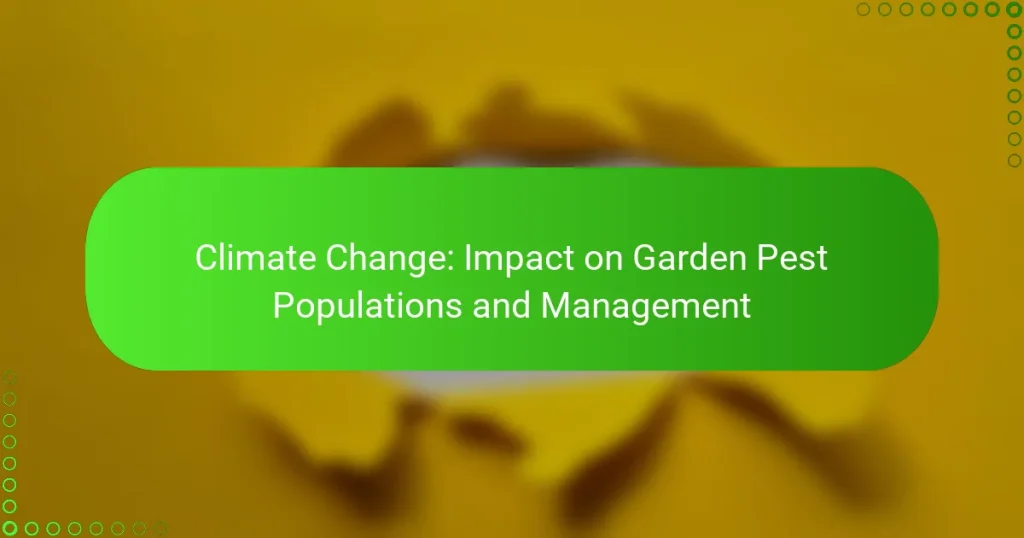
Climate Change: Impact on Garden Pest Populations and Management
Climate change is reshaping garden pest populations by influencing their reproduction rates, distribution, and seasonal…
Sustainable gardening practices are essential for promoting environmental health and conserving resources while enhancing biodiversity. By implementing eco-friendly methods, gardeners can create resilient ecosystems that provide both beauty and nourishment. This overview will guide you through the key principles and benefits of sustainable gardening, helping you cultivate a thriving garden that supports the planet.
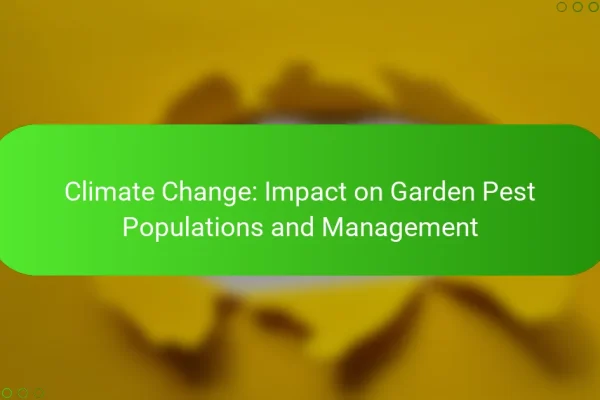
Climate change is reshaping garden pest populations by influencing their reproduction rates, distribution, and seasonal activity, particularly in regions like South Africa. As warmer temperatures and altered precipitation patterns create more favorable conditions for pests, gardeners face increasing challenges in managing these populations effectively. How does climate change affect garden pest populations in South Africa?…
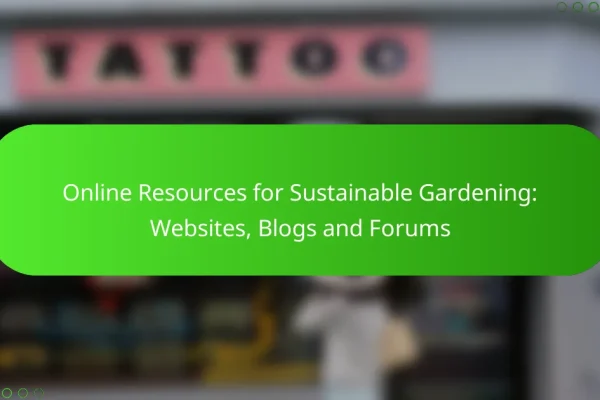
Exploring online resources for sustainable gardening can significantly enhance your gardening experience while promoting eco-friendly practices. Websites, blogs, and forums dedicated to this topic offer practical advice tailored to local conditions, helping gardeners of all skill levels cultivate their gardens sustainably. Engaging with these platforms not only provides valuable insights but also connects you with…
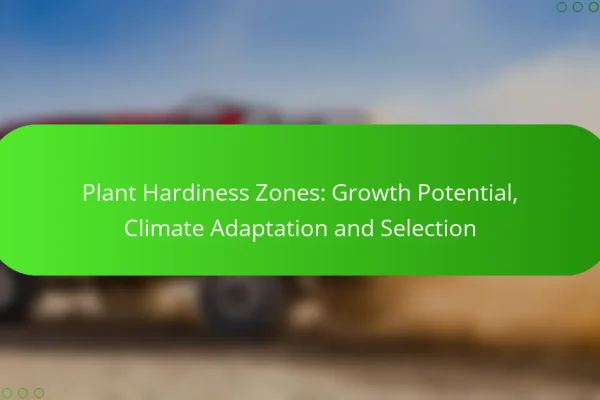
Plant hardiness zones play a crucial role in determining the growth potential of various species by aligning them with specific climatic conditions. In South Africa, these zones guide gardeners and farmers in selecting plants that are best suited for their local environment, taking into account factors such as temperature extremes and seasonal variations. By understanding…
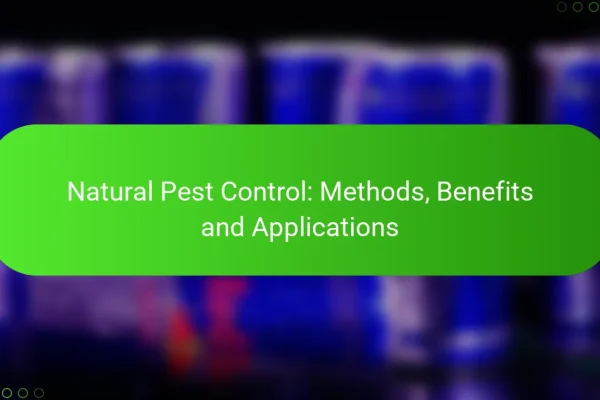
Natural pest control methods provide effective and environmentally friendly alternatives to chemical pesticides, utilizing techniques such as neem oil application, diatomaceous earth, and companion planting. These approaches not only safeguard the environment but also promote health benefits and cost savings by preserving beneficial organisms. By focusing on prevention and the use of natural predators, gardeners…
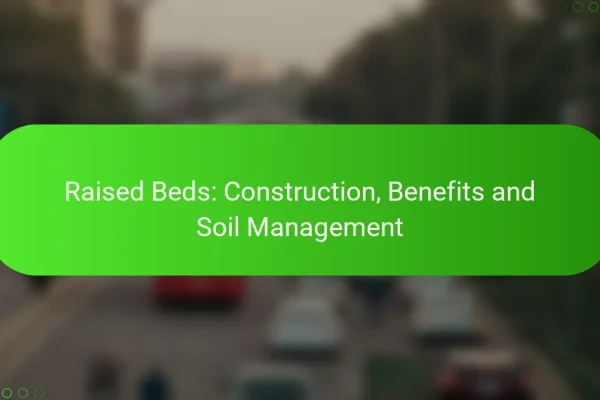
Raised beds are an effective gardening solution that enhances drainage, improves soil quality, and provides easier access for gardeners. By constructing these beds with suitable materials, you can create an optimal growing environment that promotes healthier plants and higher yields. Additionally, managing the soil within raised beds through careful selection and regular amendments is crucial…
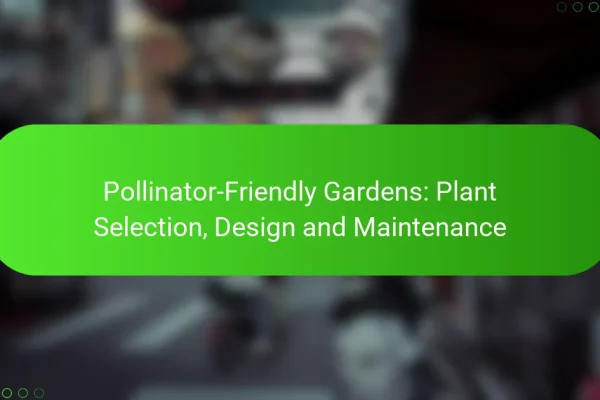
Creating a pollinator-friendly garden is essential for supporting local ecosystems and enhancing biodiversity. By selecting native plants, incorporating a variety of flower types, and designing inviting habitats, you can attract essential pollinators like bees and butterflies. Implementing effective design practices ensures a vibrant garden that thrives throughout the growing season. How to create a pollinator-friendly…

Smart irrigation controllers are revolutionizing water management by optimizing usage and reducing costs while promoting healthier plants. By automatically adjusting watering schedules based on real-time weather conditions and soil moisture levels, these devices ensure efficient water application and conservation. Selecting a controller with features like programmable schedules and weather integration can significantly enhance irrigation efficiency…
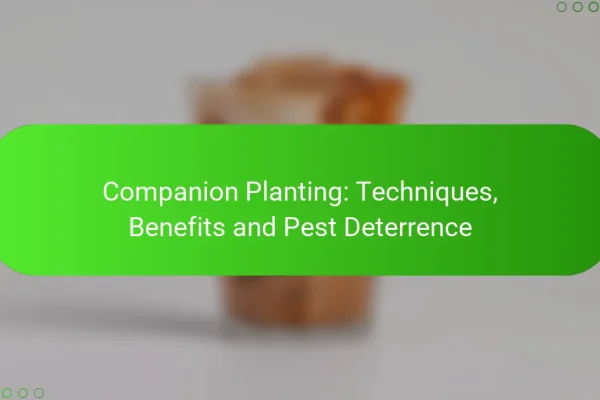
Companion planting is a gardening technique that involves strategically pairing plants to enhance growth, deter pests, and improve overall garden health. In South Africa, this method can lead to increased crop yields, effective pest control, and a more resilient ecosystem. By understanding the unique benefits of compatible plant combinations, gardeners can cultivate healthier and more…
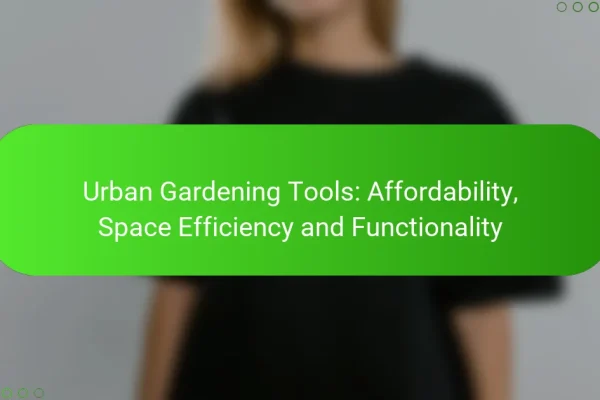
Urban gardening presents unique challenges, but with the right tools, you can cultivate a thriving garden even in limited spaces. Affordable and versatile gardening tools are essential for maximizing your gardening experience, allowing you to efficiently utilize vertical and compact methods. By selecting durable and functional tools, you can enhance your gardening efforts while staying…
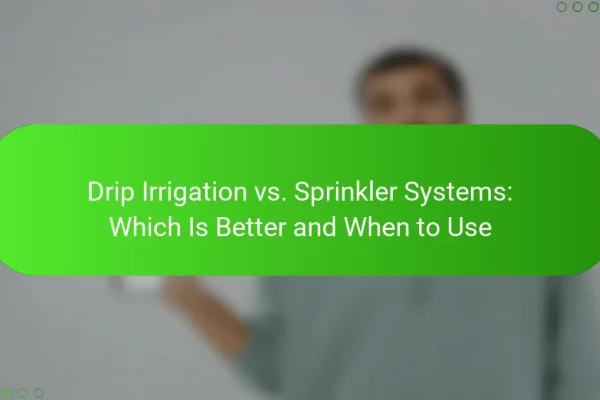
When it comes to irrigation, choosing between drip systems and sprinklers can significantly impact water efficiency and plant health. Drip irrigation excels in water-scarce regions by delivering water directly to the roots, while sprinkler systems are ideal for larger areas and diverse plant types. Understanding the strengths of each method will help you make an…
Sustainable gardening practices in South Africa focus on methods that support environmental health, conserve resources, and promote biodiversity. These practices aim to create a resilient ecosystem while providing food and beauty to gardens.
Organic gardening techniques emphasize the use of natural inputs and processes to cultivate plants. This includes avoiding synthetic fertilizers and pesticides, opting instead for compost, organic mulches, and natural pest control methods such as beneficial insects.
In South Africa, gardeners can enhance soil health by incorporating local organic materials like kraal manure or worm castings. Regular crop rotation and companion planting can also improve yields and reduce pest issues.
Water conservation methods are crucial in South Africa, where water scarcity can be a significant concern. Techniques such as drip irrigation, rainwater harvesting, and using greywater for irrigation can significantly reduce water usage.
Mulching around plants helps retain moisture in the soil, while selecting drought-resistant plants can further minimize water needs. Implementing these strategies can lead to a more sustainable and resilient garden.
Choosing native plants is a key aspect of sustainable gardening in South Africa. Native species are adapted to local conditions, require less water, and provide essential habitat for local wildlife, including pollinators.
Examples of native plants include the Cape fynbos species and various aloes, which thrive in local climates. By incorporating these plants, gardeners can create beautiful landscapes that support biodiversity while reducing maintenance and resource input.
Starting a sustainable garden involves selecting eco-friendly practices that promote biodiversity and minimize environmental impact. Focus on choosing the right location, preparing your soil effectively, and incorporating composting to enhance soil health and reduce waste.
Choosing the right location for your sustainable garden is crucial for its success. Look for a spot that receives adequate sunlight, typically 6-8 hours a day, and has good drainage to prevent waterlogging. Consider proximity to water sources for easy irrigation and accessibility for maintenance.
Evaluate the local climate and wind patterns, as these factors can affect plant growth. If possible, select a location that is sheltered from strong winds and extreme weather conditions, which can damage plants and reduce yields.
Proper soil preparation is essential for a thriving sustainable garden. Start by testing your soil's pH and nutrient levels to determine what amendments may be necessary. Aim for a pH level between 6.0 and 7.5, which is ideal for most garden plants.
Incorporate organic matter such as well-rotted manure, leaf mold, or peat moss to improve soil structure and fertility. Tilling the soil lightly can help aerate it, but avoid over-tilling, which can disrupt soil organisms and lead to erosion.
Composting is a key practice in sustainable gardening that recycles organic waste into nutrient-rich soil amendments. Start a compost pile using kitchen scraps, yard waste, and other biodegradable materials, ensuring a balance of green (nitrogen-rich) and brown (carbon-rich) materials for optimal decomposition.
Maintain your compost by turning it regularly to aerate the pile and speed up the breakdown process. Aim for a compost temperature of 130-150°F (54-65°C) to kill pathogens and weed seeds. In a few months, you will have rich compost ready to enrich your garden soil.
Sustainable gardening offers numerous benefits, including environmental preservation, enhanced biodiversity, and improved health through organic produce. By adopting sustainable practices, gardeners can create a more resilient ecosystem while enjoying the fruits of their labor in a healthier way.
Sustainable gardening significantly reduces environmental impact by minimizing resource consumption and pollution. Techniques such as composting, rainwater harvesting, and organic pest control help conserve water and reduce chemical runoff into local waterways.
Implementing practices like crop rotation and companion planting can improve soil health and reduce the need for synthetic fertilizers. These methods not only enhance the garden's productivity but also contribute to a healthier environment.
One of the key benefits of sustainable gardening is the promotion of biodiversity. By creating habitats for various species, such as pollinators and beneficial insects, gardeners can foster a balanced ecosystem that supports plant growth and pest control.
Incorporating native plants into your garden can attract local wildlife and enhance the overall resilience of your garden. This approach not only supports the local ecosystem but also reduces the need for chemical interventions.
Growing organic produce through sustainable gardening practices offers significant health benefits. Organic fruits and vegetables are often richer in nutrients and free from harmful pesticides and chemicals, making them a healthier choice for consumers.
Additionally, gardening itself provides physical activity and mental well-being, contributing to a healthier lifestyle. Engaging in sustainable gardening can lead to a more nutritious diet and a deeper connection to the food you consume.
Essential tools for sustainable gardening include hand tools, water-efficient irrigation systems, and composting bins. These tools help maintain an eco-friendly garden while promoting healthy plant growth and resource conservation.
Hand tools are vital for organic gardening as they allow for precise control and minimal soil disturbance. Essential tools include trowels, pruners, and hoes, which help in planting, trimming, and cultivating the soil.
When selecting hand tools, choose those made from sustainable materials like bamboo or recycled metals. Regular maintenance, such as cleaning and sharpening, extends their lifespan and efficiency.
Water-efficient irrigation systems are crucial for conserving water while ensuring plants receive adequate moisture. Drip irrigation and soaker hoses deliver water directly to the plant roots, reducing evaporation and runoff.
Consider installing a rainwater harvesting system to collect and store rainwater for irrigation. This not only saves on water bills but also utilizes a natural resource, promoting sustainability.
Composting bins are essential for recycling organic waste into nutrient-rich soil amendments. They can be made from various materials, including wood, plastic, or metal, and come in different sizes to suit your gardening needs.
To create effective compost, balance green materials (like kitchen scraps) with brown materials (like dried leaves). Regularly turning the compost helps aerate it, speeding up the decomposition process and producing usable compost within a few months.
Choosing sustainable gardening supplies involves selecting products that minimize environmental impact while promoting plant health. Look for items that are organic, biodegradable, and sourced from renewable resources to ensure your gardening practices are eco-friendly.
When selecting organic fertilizers, prioritize products that are certified organic and free from synthetic chemicals. Look for fertilizers made from natural materials such as compost, manure, or plant extracts, which not only nourish plants but also improve soil health.
Consider the nutrient content and release rate of the fertilizer. Slow-release options are often preferable as they provide a steady supply of nutrients over time, reducing the risk of runoff and leaching into waterways. A balanced fertilizer with a mix of nitrogen, phosphorus, and potassium is typically beneficial for most garden plants.
Eco-friendly pest control options include natural insecticides, traps, and barriers that minimize harm to beneficial insects and the environment. Look for products that are derived from plant oils or other natural substances, and check for certifications that indicate they are safe for use in organic gardening.
Integrated Pest Management (IPM) is a practical approach that combines various strategies to manage pests sustainably. This may include introducing beneficial insects, using physical barriers, and applying organic pesticides only when necessary. Always read labels carefully to ensure compliance with local regulations and safety guidelines.
Sustainable gardening faces several challenges, including pest management and soil health maintenance. Addressing these issues is crucial for creating a thriving, eco-friendly garden that minimizes environmental impact.
Managing pests sustainably involves balancing effective control methods with ecological considerations. Organic pesticides, beneficial insects, and companion planting are common strategies that can help reduce pest populations without harming the environment.
It's important to monitor pest levels regularly and identify specific threats to your garden. For instance, using traps or visual inspections can help determine when intervention is necessary. Avoiding broad-spectrum chemicals can protect beneficial organisms that contribute to a healthy ecosystem.
Maintaining soil health is vital for sustainable gardening, as healthy soil supports plant growth and biodiversity. Practices such as crop rotation, cover cropping, and composting can enhance soil structure and nutrient content.
Regularly testing soil pH and nutrient levels can guide amendments and ensure optimal conditions for plant health. Incorporating organic matter, like compost or well-rotted manure, can improve soil fertility and moisture retention, reducing the need for synthetic fertilizers.